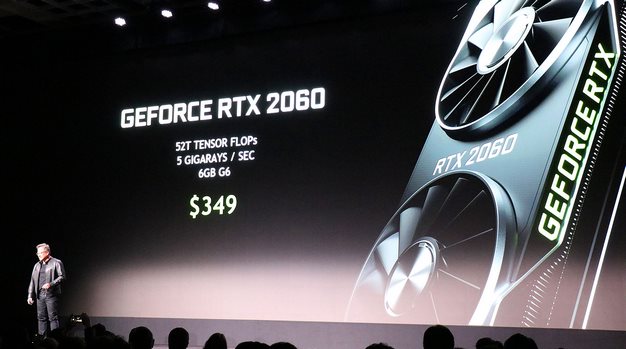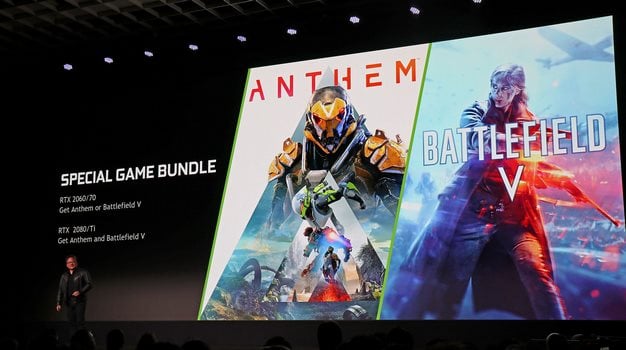NVIDIA Unveils GeForce RTX 2060, Support For Adaptive Sync At CES 2019
As has been the tradition for the last few years, NVIDIA CEO Jensen Huang got on stage in Las Vegas to host the company’s annual pre-CES keynote. Though Jensen’s last few CES keynotes have featured a myriad of AI, Deep Learning, and autonomous vehicle related news, this year’s keynote focused almost solely on gaming and the advanced brought forth by the company’s Turing GPU architecture. The talk began with a brief history on rasterization on how fidelity has improved over the last decade and a half, before pivoting to RTX technology and a discussion about how AI and ray tracing will usher in more photo-realistic imagery moving forward.
To that end, Jensen showed a new version of the Project Sol demo that many of you may have seen before, during the initial RTX launch. This latest iteration of the demo, however, has been significantly refined and enhanced over the last few months as NVIDIA’s engineers have gotten more familiar with Turing and NVIDIA’s RTX framework. Along with that demo, Jensen also announced that Bioware would be incorporating DLSS (Deep Leaning Super Sampling) in the upcoming multiplayer action role-playing Anthem that launches next month.
3DMark’s recently announced Ray Tracing benchmark, Port Royale, was shown as well running with and without DLSS at 1440p. With TAA (Temporal AA), the benchmark ran at about 30 FPS (give or take), but with DLSS, the framerate shot up to about 44 FPS. In addition to increasing performance, however, image quality also appeared better with DLSS – there were fewer AA-related artifacts and many textures appeared sharper with DLSS enabled. Jensen also showed off the upcoming game Justice, which will leverage RTX technology and DLSS, and the latest build of Battlefield V with RTX and DLSS was demoed as well – a patch for Battlefield V that will enable DLSS is coming in a few months.
After all of the game demos and news, Jensen officially unveiled a new addition to the GeForce RTX-20 series, the GeForce RTX 2060. As its branding suggests, the GeForce RTX 2060 drops in just behind the higher-end GeForce RTX 2070 and brings NVIDIA’s Turing GPU architecture down to a more affordable price point -- $349 to be exact.
We will have a full review of the RTX 2060 posted in the morning, but Jensen did reveal a couple of key details we can reiterate here. The RTX 2060 has 6GB of GDDR6 RAM with the same 14Gbps effective data rate as other GeForce RTX 20-series cards and the GPU is outfitted with 240 Tensor Cores that can deliver 52 teraflops of deep learning compute performance.
For a limited time, buyers of GeForce RTX 2060 (and RTX 2070) cards will also get to choose between copies of the upcoming game Anthem or Battlefield V. It was also revealed that GeForce RTX 2080 or RTX 2080 Ti buyers will get copies of both.
In a somewhat surprising, but welcome move, NVIDIA’s CEO announced some exciting G-SYNC-related news as well. Jensen quickly discussed some of the killer G-SYNC monitors that have either launched recently or will be debuting at CES – like the massive HP Omen X Emperium – and he also revealed that NVIDIA has begun testing and validating non-G-SYNC enabled, Adaptive-SYNC monitors, i.e. Freesync monitors, and that NVIDIA will be supporting those displays beginning with a driver update slated to arrive on January 15. To date, only 12 of the hundreds of Freesync monitors currently on the market have been certified through NVIDIA’s testing, but we’re told that adaptive refresh can be enabled on non-validated displays as well – the user experience may not be ideal with all of them, however.
Jensen announced an array of GeForce RTX powered gaming notebooks as well, many of which we currently have featured on the news page.






